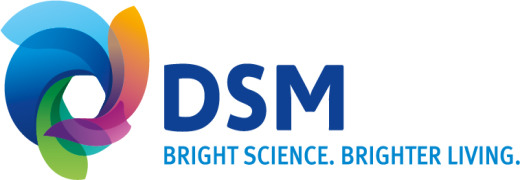News
DSM report reveals consumer perception of acrylamide
7 Sep 2018DSM has published a new report in its Global Insights Series which indicates that consumers are still largely unaware of acrylamide - but those who do know something about acrylamide, know enough to be concerned.

DSM has published a new report in its Global Insights Series which indicates that consumers are still largely unaware of acrylamide - but those who do know something about acrylamide, know enough to be concerned. DSM’s survey, conducted amongst consumers in France, Germany, the UK and the USA, is said to show that once knowledgeable about acrylamide, consumers expect food manufacturers to find solutions.
Acrylamide is a suspected carcinogen that forms in foods with reducing sugar that are processed at a high temperature, such as cookies or tortilla chips, DSM notes, pointing out that mMany food manufacturers have already taken significant steps to reduce acrylamide levels in their products - but recent regulatory changes and increasing public awareness about acrylamide is prompting even further action. The results of DSM’s consumer survey are said to show there is still room for the food industry to claim a leadership role in acrylamide reduction.“While acrylamide is still relatively ‘under the radar’ for many consumers, the topic is quickly gaining attention through major media outlets in the US and Europe,” said Fokke van den Berg, Business Director for Baking at DSM. “Our research shows that once consumers are informed about acrylamide, they want manufacturers - more than regulators - to take action to reduce acrylamide levels.”According to DSM’s survey, a high 54% of people in Germany are aware of acrylamide, but that number dips to an average of just 12% in France, the UK, and the US. Most of these informed consumers (64%) have decided to take action to reduce their acrylamide consumption, such as by adjusting their cooking behaviour. Around half of those surveyed believe the responsibility for acrylamide levels in the products they buy sits with food manufacturers, and just 28% believe regulators should take responsibility.Food manufacturers acting fast to reduce acrylamide in their products face a challenge to deliver acrylamide-reduced versions of their products with the same taste and texture their consumers know and love, according to DSM. DSM’s PreventASe and PreventASe XR are asparaginases designed to prevent the formation of acrylamide in a wide range of baked goods and snacks such as bread, cookies, crackers, breakfast and infant cereals, French fries, tortilla chips, and pretzels without impacting taste, texture or shelf-life. Using the PreventASe range, food producers can, says DSM, reduce acrylamide levels by up to 95%, depending on the type of application.Related news

Digital platform can help optimise the protein quality of plant-based meals
29 Dec 2025
Researchers at Wageningen University have developed a metric to assess – and optimise – the protein quality of plant-based meals.
Read more
Debate over ban on ‘meaty’ names for plant-based products reaches stalemate
26 Dec 2025
The debate over a ban on plant-based products using “meaty” terms has reached a stalemate, leaving manufacturers in limbo and still facing overhauls to their marketing and packaging.
Read more
Our most-read articles of 2025
23 Dec 2025
From trade tariffs to heavy metals in protein, we look back at some of the industry’s highlights of 2025 and round up our most-read stories of the year.
Read more
Bigging up bean-based products and consumption in Britain
19 Dec 2025
Non-profit organisation the Food Foundation has launched a campaign, “Bang in Some Beans”, designed to increase UK consumers’ legume consumption.
Read more
Pioneers of circular plastic packaging push for new policies
18 Dec 2025
Some of the world’s largest food and drink companies have grown frustrated at investing in circular packaging systems, as the majority “wait on the sidelines”.
Read more
Which sustainability-related labels are consumers willing to pay a premium for?
10 Dec 2025
Products with animal welfare and geographic origin labels elicit a higher willingness to pay a premium than those with carbon-related labels, research suggests.
Read more
Sorghum emerges as better-for-you hero ingredient
9 Dec 2025
With the launch of Novak Djokovic’s sorghum-based brand, the grain’s popularity in the better-for-you snacking sphere is on the rise, thanks to its nutritional and sensory properties.
Read more
Innovation promise in 'maturing' plant-based dairy alternatives market
8 Dec 2025
Plant-based dairy is a maturing market that still faces significant hurdles around taste, functionality, nutrition, and price, but industry is innovating fast, according to experts speaking at Fi Europe.
Read more
Celebrating the winners of the Fi Europe Innovation Awards 2025
3 Dec 2025
Food industry stakeholders celebrated as the winners of the Fi Europe Innovation Awards were announced at a ceremony in Paris.
Read more
Yuka’s food scanning app helps consumers make healthier choices
2 Dec 2025
Global food scanning app Yuka helps consumers understand the content of their shopping baskets and shapes producers’ reformulation plans.
Read more

